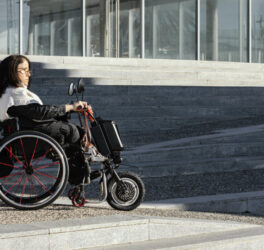
Parents of people living with developmental disabilities are demanding their children be prioritized for COVID-19 vaccinations.
“We know that people with intellectual disability are at higher risk for getting COVID,” Alexandre Grant, who has a twin brother with a developmental disability, told Global News.
“They’re also at higher risk for severe outcomes.”
“I think his intellectual disability makes it really difficult for him to be able to understand what it means to be in a pandemic,” he explained of his twin, Jonathan.
Their father, Philippe Grant, believes that early vaccination for Jonathan would be a first step in the return of normal life for the entire family.
“Because of the pandemic, Johnathan’s regular in-person activities were cancelled,” he said.
“He used to go away occasionally for long weekends for camp. There have been none of those.”
The father added that these changes in routine have not only affected Jonathan’s overall well being, but also the entire family’s health as there has been no rest for them.
“With the vaccine he could resume his activities in person,” Philippe Grant insisted.
Sam Kuhn’s son, Charlie, 10, is also on the autism spectrum. The father said it’s very confusing for Charlie when his special needs schooling switches from physical to virtual learning. “It’s more difficult because he’s not interacting directly with the teachers,” he said.
Kuhn feels that if developmentally disabled children like Charlie were vaccinated, they’d be able to resume their activities and spend less time at home.
Experts are in agreement that people with developmental disabilities should get vaccine priority.
Yona Lunsky, senior scientist at the Centre for Addiction and Mental Health said, “There’s the risk of contracting COVID and then there’s the risk of what happens if they get COVID.”
She stressed that, often, people with developmental disabilities have limited speech and are unable to communicate feeling unwell. “If that person has a harder time expressing their symptoms then that’s gonna mean they’ll get help later,” Lunsky said.
The health ministry released a statement, stating that they currently have no information that people with developmental disabilities are at higher risk.
The statement reads: “There has been no change in the prioritization, but the (Ministry of Health and Social Services) and its partners are working to define the list of chronic diseases and health problems that increase the risk of complications.”








